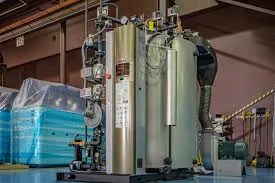CE Certification Requirements for Hydrogen-Powered Steam Boiler Systems and Safety Standards
Understanding CE Certification for Hydrogen Steam Boilers
In recent years, the emphasis on sustainable energy solutions has surged, leading to the exploration and implementation of hydrogen as a clean energy source. Hydrogen steam boilers, which facilitate the use of hydrogen fuel for generating steam, are gaining traction in various industries, including power generation and manufacturing. However, the use of these innovative systems also necessitates adherence to safety and performance standards, which is where CE certification becomes paramount.
What is CE Certification?
CE marking indicates that a product meets the essential requirements of the relevant European health, safety, and environmental protection legislation. It is crucial for demonstrating that a product is safe to use in European Economic Area (EEA) countries. For hydrogen steam boilers, CE certification confirms that the equipment complies with regulations related to construction techniques, safety standards, and environmental performance.
Importance of CE Certification for Hydrogen Steam Boilers
1. Safety Assurance Hydrogen is highly flammable, which presents unique risks. CE certification evaluates the design and construction of hydrogen steam boilers to ensure that they operate safely under various conditions. This includes rigorous testing of pressure systems, pressure relief mechanisms, and overall boiler integrity.
2. Environmental Compliance As industries strive for greener operations, hydrogen steam boilers are viewed as an eco-friendly alternative to traditional fossil fuel systems. CE certification examines the environmental impact of the boiler, ensuring it meets stringent emission standards, thereby contributing to lower greenhouse gas emissions.
3. Market Access In many regions, particularly within Europe, products without CE certification cannot be legally sold or operated. For manufacturers of hydrogen steam boilers, obtaining this certification not only facilitates market entry but also builds trust with customers and stakeholders who prioritize safety and compliance.
4. Quality Assurance The certification process helps ensure that manufacturers adhere to high-quality production standards. This involves regular inspections and audits of manufacturing processes, which can enhance product reliability and longevity in the field.
The CE Certification Process for Hydrogen Steam Boilers
The path to CE certification involves several stages, including
ce certification hydrogen steam boiler

1. Preliminary Assessment Manufacturers must first perform a risk assessment and determine the applicable directives and standards related to their product.
2. Testing and Documentation Products undergo various tests to ensure they meet design specifications and safety criteria. This involves preparing a technical file that includes design drawings, specifications, and test results.
3. Conformity Assessment Depending on the complexity of the product, this may involve consulting a notified body—an organization designated to assess conformity.
4. Declaration of Conformity Once a hydrogen steam boiler complies with all relevant standards, the manufacturer must issue a Declaration of Conformity, outlining the compliance with EU directives.
5. Affixing the CE Mark The final step is affixing the CE mark to the product, allowing it to be marketed within the EEA.
Challenges and Considerations
While CE certification is essential, the process can pose challenges. Manufacturers must stay abreast of evolving regulations and standards related to both hydrogen technology and steam systems. Continuous innovation and updates in safety practices require ongoing attention to ensure compliance.
Moreover, as the market for sustainable energy grows, the demand for skilled personnel who understand the complexities of hydrogen steam boiler systems and their certification will also rise. Therefore, investing in training and development for engineers and technicians is crucial.
Conclusion
In conclusion, as the world pivots towards greener energy sources, hydrogen steam boilers present a viable solution for many industries. However, with this innovation comes the responsibility of ensuring safety, quality, and environmental compliance. CE certification plays a vital role in this process, marking the transition from theoretical application to practical, safe, and sustainable operations. As manufacturers navigate the journey toward CE certification, they not only contribute to a cleaner future but also foster trust and reliability within their markets.
-
Top Electric Steam Boiler Manufacturers - High Efficiency SolutionsNewsJul.30,2025
-
Top Electric Steam Boiler Manufacturers – Efficient Industrial SolutionsNewsJul.29,2025
-
Top Electric Steam Boiler Manufacturers | Reliable Industrial SolutionsNewsJul.29,2025
-
OEM Steam Boiler Solutions for Custom Needs | High Efficiency & VersatilityNewsJul.29,2025
-
High-Efficiency Thermal Oil Boiler for Industrial Heating SolutionsNewsJul.29,2025
-
Top Electric Steam Boiler Manufacturers for Industrial EfficiencyNewsJul.28,2025

